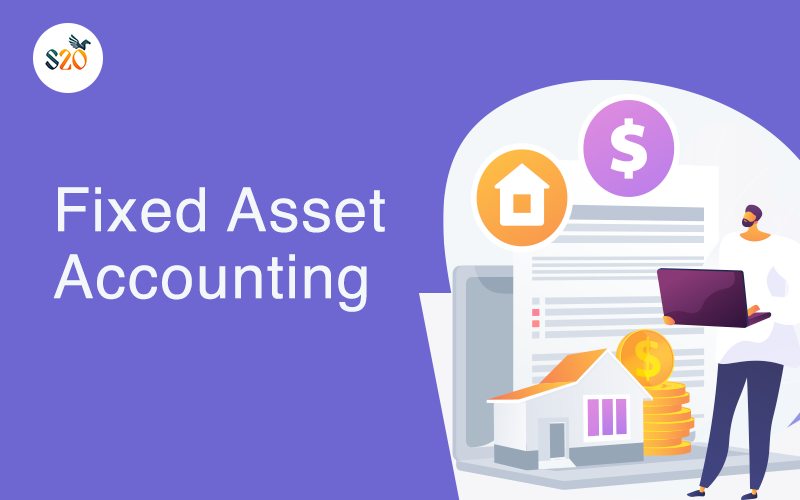Goods & Services Tax (GST) was presented in the Indian Constitution through the 101st Constitutional Amendment Act, 2016. Numerous sectors received some negative as well as positive effects with the introduction of GST.
Super 20 Training Institute offers best online GST course in India that can help individuals and organizations in understanding and implementing GST.
Impact of GST on Different Sectors of The Economy
Retailers, Distributor, and Manufacturing Sector
GST has boosted performance and competitiveness in the retailers, distributors, and manufacturing sectors as it has replaced various Indirect Taxes, and the troubles of the older indirect tax system have vanished. The remaining worries of the sector are declining exports and high expenses.
Agricultural Sector
The agricultural sector covers around 16% of the Indian Gross Domestic Product and is a significant sector to the overall Indian Gross Domestic Product. The introduction of the Goods & Services Tax has affected the transportation of agricultural items across states all over India. GST may help India in forming its first National Market for agricultural items.
Textile Sector
GST has a positive effect on readymade and textile pieces of garments The advantages which GST gave to the textile sector are the Input Tax Credit framework, Input Tax Credit on capital goods and the cost of transportation is currently lower in contrast with the past tax system.
IT Sector
Factors like the accessibility of Input Tax Credit or ITC will reduce the operating expenses and expand the Information Technology sector’s general productivity. The advantages of the GST on the IT sector are simpler tax rate administration, removal of cascading effect of taxes, and increase in revenue from the creation of software for GST.
Banking Sector
The banking sector has turned out to be more costly. Major challenges in the implementation of GST in the banking sector are stated below:
- Separate registration based on location for the banks
- Identification of place of supply
- Increase in cost for the transactions between banks
Hotel and Tourism
The rate of GST varies for the inns as a result of the tariffs. Goods & Services Tax rates for hotels are dependent on room tariff with impact from 1st October 2019. GST brought a single tax rate compared to the multiple taxes under the previous system which has made it easier for the industry and provides clarity to the customers as well.
Entertainment Industry
The entertainment industry has benefited from the introduction of the GST benefit. Before GST, the sector had many taxes. They included the state tax, central tax, and tax by the local authorities. With GST, they moved into just one tax.
Automobile Sector
A wide range of taxes like Excise Duties, VAT, Sales Tax, and Road Tax were levied on this sector. GST has brought an increase in automobile deals as it replaced several other taxes. Automobile brands experienced record growth in the year 2018 and 2019.
Export-Import Sector
Import and Export were administered by the Customs Duty, Excise Duty, Value Added Tax, and Service Tax. All these taxes have been replaced by GST. IGST includes the taxes which were administering the imports of goods and services before the GST.
Education Sector
Education of people has a significant part in the strength of a nation and therefore the government has tried to keep education institutions excluded from the duties or taxes, in the new Goods & Services Tax system. These include the services given by any educational association to its staff, faculty, and students.
Real Estate
This sector has seen good growth in recent years and GST on real estate has brought more productive activities, and numerous new brands have come up which has helped the economy of the nation enormously.
Energy Sector
The energy sector is excluded from the scope of GST which will affect the economy.
Iron and Steel
Central Sales Tax, Value Added Tax, Excise Duty were levied in this sector and an aggregate of 19.5% net duty was forced upon iron & steel in the older system. Under GST most of the items manufactured fall in the 12% and 18% categories, while a few items fall under the 28% category.
Service Sector
Many service sectors had a lot of changes as they adjusted to the presentation of this new tax system. The positive GST impacts on the service sector are:
- No double taxation
- Easier taxation for repairs and maintenance
- Access to inputs held in stock
- Reduction in costs to service providers
- Equality amongst all states
- Decrease on the cost of inputs
Conclusion
GST is a milestone in India’s Indirect Tax system that addresses multiple issues together. It is a destination-based tax charged at the point of consumption. Its introduction may have benefited some sectors but in the long term, it will benefit all the sectors.







